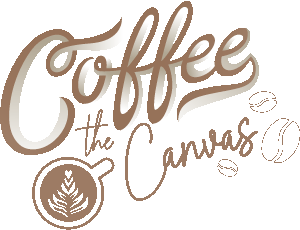Choosing the right university is a life-changing decision—and in 2025, students are more selective than ever. Whether you’re looking for academic prestige, world-class faculty, campus life, or long-term career outcomes, the best universities in the USA continue to set the global standard for higher education. This list of the top 25 best universities in the USA for 2025 combines rankings from academic experts, real student feedback, post-grad success metrics, and my own observations from researching and visiting campuses across the country. These schools aren’t just names—they’re launchpads for ambitious, curious, and driven individuals.
1. Massachusetts Institute of Technology (MIT) – Cambridge, MA
MIT continues to dominate in innovation, technology, and entrepreneurship. In 2025, it’s not just the best STEM university in the world—it’s a breeding ground for future CEOs, Nobel laureates, and groundbreaking researchers.
Acceptance Rate: ~4.7%
Notable Programs: Engineering, Computer Science, AI, Economics
What Students Say: “MIT pushes you, but the support system is real. If you love solving complex problems, this is the place.”
Career Outlook: Top-tier recruiters from Google, Tesla, SpaceX, and McKinsey frequent MIT’s career fairs.
2. Stanford University – Stanford, CA
Located in the heart of Silicon Valley, Stanford is where tech meets academia. In 2025, its synergy with the tech world remains unmatched. Plus, its startup culture is still thriving.
Acceptance Rate: ~3.9%
Notable Programs: Computer Science, Engineering, Psychology, Business
Fun Fact: Over 40,000 startups have been founded by Stanford alumni.
Student Vibe: Collaborative, entrepreneurial, sunshine-filled.
3. Harvard University – Cambridge, MA
Harvard is the oldest and arguably most prestigious university in the U.S. It maintains its clout in law, business, politics, and medicine—and 2025 is no exception.
Acceptance Rate: ~3.4%
Notable Programs: Law, Political Science, Business, Biology
Top Alumni: Barack Obama, Mark Zuckerberg (dropped out), Ruth Bader Ginsburg
Why Students Choose Harvard: “The networking opportunities and global recognition are unmatched.
4. California Institute of Technology (Caltech) – Pasadena, CA
Caltech may be small, but its impact is massive—especially in physics, engineering, and space sciences. With a low student-to-faculty ratio, it offers unparalleled access to mentorship and research.
Acceptance Rate: ~3.5%
Notable Programs: Astrophysics, Engineering, Chemistry
Student Experience: Intense but intellectually rewarding.
NASA Collaboration: Caltech manages NASA’s Jet Propulsion Laboratory.
5. Princeton University – Princeton, NJ
Princeton balances academic rigor with undergraduate focus. In 2025, it still offers one of the best liberal arts educations in the country, with strong support for independent research.
Acceptance Rate: ~4.2%
Notable Programs: Mathematics, Public Policy, Literature
Campus Life: Collegiate gothic charm, intimate classes, tight-knit community
Standout Feature: Every student must complete a senior thesis.
6. University of Chicago – Chicago, IL
The UChicago vibe is academically intense and intellectually curious. Its “Life of the Mind” ethos is alive and well in 2025, attracting students who thrive on deep discussions and analysis.
Acceptance Rate: ~5.4%
Notable Programs: Economics, Political Science, Sociology
Student Perspective: “You don’t come here for easy As—you come here to challenge yourself.”
Alumni Impact: 100+ Nobel laureates and a strong Wall Street presence.
7. Columbia University – New York, NY
Right in the heart of Manhattan, Columbia blends Ivy League prestige with the pulse of the city. Its journalism, business, and international affairs programs are particularly influential.
Acceptance Rate: ~3.6%
Notable Programs: Journalism, International Relations, Business, Neuroscience
What Students Love: “Endless internship opportunities and the NYC energy.”
Noteworthy Alumni: Alexander Hamilton, Barack Obama, Warren Buffett
8. University of Pennsylvania (UPenn) – Philadelphia, PA
UPenn offers both intellectual versatility and career readiness. Wharton is still the gold standard in business education in 2025, and the interadisciplinary culture thrives.
Acceptance Rate: ~4.1%
Notable Programs: Finance, Healthcare Management, Political Science, English
Standout Element: Dual-degree programs (e.g., Huntsman, Vagelos)
Alumni Love: “The network and mentorship from day one are incredible.”
9. Yale University – New Haven, CT
Yale continues to produce leaders in politics, law, and the arts. In 2025, its global influence is sustained by a commitment to intellectual exploration and public service.
Acceptance Rate: ~4.4%
Notable Programs: Law, Drama, History, Music
Famous Graduates: Hillary Clinton, Meryl Streep, Anderson Cooper
Residential College System: Makes the massive Ivy feel intimate
10. Duke University – Durham, NC
Duke blends elite academics with spirited campus life. Its programs in medical research, engineering, and public policy remain standouts in 2025.
Acceptance Rate: ~6%
Notable Programs: Biomedical Engineering, Public Policy, Law, Global Health
Student Life: Strong athletics, research, and southern charm
Student Review: “The perfect balance of hard work, social life, and opportunity.”
11. Northwestern University – Evanston, IL
Northwestern is where top-tier academics meet creative expression. With a stunning lakeside campus near Chicago, it’s especially known for its journalism, theater, and business programs.
Acceptance Rate: ~7%
Notable Programs: Journalism (Medill), Theater, Engineering, Economics
Student Vibe: “Collaborative, quirky, and ambitious”
Standout Feature: The quarter system lets students explore more classes per year.
12. University of California, Berkeley (UC Berkeley) – Berkeley, CA
Berkeley remains a beacon for public higher education. It’s widely praised for its activism, STEM breakthroughs, and diversity.
Acceptance Rate: ~11%
Notable Programs: Computer Science, Environmental Science, Political Science
What Sets It Apart: Cutting-edge research and a vibrant social movement legacy
Alumni Impact: Steve Wozniak, Eric Schmidt, and 100+ Nobel laureates
13. Cornell University – Ithaca, NY
Cornell has one of the widest ranges of academic programs among the Ivies—everything from hotel management to veterinary medicine.
Acceptance Rate: ~7.3%
Notable Programs: Agriculture, Hospitality (SHA), Engineering, Architecture
Campus Perks: Gorgeous upstate NY setting and a diverse student body
Student Quote: “You’ll find your niche—whether you’re pre-med or into food science.”
14. Brown University – Providence, RI
Brown’s open curriculum allows students to design their own path, making it a paradise for self-directed learners and creatives.
Acceptance Rate: ~5.1%
Notable Programs: Cognitive Science, Creative Writing, Public Health
Student Vibe: Curious, open-minded, socially conscious
Alumni Example: Emma Watson, John Krasinski, Janet Yellen
15. University of Michigan – Ann Arbor – Ann Arbor, MI
Michigan nails it across academics, sports, student life, and research. It’s often called a “public Ivy” and for good reason.
Acceptance Rate: ~18%
Notable Programs: Engineering, Business (Ross), Psychology, Law
Big Draw: Over 1,600 student organizations and a dynamic college town
Career Outlook: Excellent alumni network and career center support.
16. Dartmouth College – Hanover, NH
Dartmouth combines Ivy prestige with an intimate, undergraduate-focused experience. Its strong liberal arts curriculum and tight-knit community stand out in 2025.
Acceptance Rate: ~6%
Notable Programs: Government, Environmental Studies, Economics
Unique Traditions: Winter Carnival, the D-Plan (flexible academic calendar)
Student Life: Outdoorsy, loyal, and very engaged alumni.
17. University of Southern California (USC) – Los Angeles, CA
USC has risen in national rankings thanks to its elite film school, business program, and proximity to tech and entertainment industries.
Acceptance Rate: ~9.8%
Notable Programs: Film (USC Cinematic Arts), Business, Communications
Major Perk: Strong alumni network in media and tech industries
Student Buzz: “It’s a dream for creatives and entrepreneurs alike.
18. New York University (NYU) – New York, NY
NYU offers unparalleled access to internships, global campuses, and top-tier programs in arts, business, and law.
Acceptance Rate: ~12%
Notable Programs: Film, Business (Stern), Performing Arts, International Studies
Urban Appeal: Right in the middle of Manhattan—there’s no true “campus”
Student Lifestyle: Independent, fast-paced, globally connected
19. Georgetown University – Washington, D.C.
Located in the heart of U.S. politics, Georgetown is a go-to for students passionate about international affairs, public policy, and law.
Acceptance Rate: ~12%
Notable Programs: International Relations (SFS), Law, Political Science
Campus Culture: Politically engaged, global-minded
Career Edge: Many students land internships on Capitol Hill or with global NGOs.
20. University of California, Los Angeles (UCLA) – Los Angeles, CA
UCLA ranks among the best public universities in the world, offering prestige, value, and access to top faculty and opportunities in sunny L.A.
Acceptance Rate: ~10.7%
Notable Programs: Film & TV, Engineering, Biology, Psychology
Campus Life: Diverse, energetic, and deeply connected to LA industries
Student Praise: “UCLA gives you world-class academics without the Ivy League price tag.”
21. University of North Carolina at Chapel Hill (UNC) – Chapel Hill, NC
UNC is one of the oldest public universities in the U.S., known for academic rigor, research excellence, and a spirited campus culture.
Acceptance Rate: ~17%
Notable Programs: Public Health, Journalism, Business (Kenan-Flagler), Biology
Campus Vibe: Warm, historic, and deeply rooted in Southern charm
Perks: In-state tuition for top-tier education, and access to Research Triangle Park
22. Boston University (BU) – Boston, MA
Located right in the heart of Boston, BU offers access to world-class hospitals, tech hubs, and research centers.
Acceptance Rate: ~14%
Notable Programs: Communications, Medicine, Engineering, International Relations
Student Body: Diverse, urban, and career-focused
Big Plus: Strong study abroad programs and co-op/internship networks
23. University of Florida (UF) – Gainesville, FL
UF has climbed significantly in national rankings and is considered one of the best value universities in the country.
Acceptance Rate: ~23%
Notable Programs: Business, Engineering, Medicine, Agricultural Sciences
What Students Love: Academic rigor with a fun, spirited atmosphere
Pro Tip: For Florida residents, it’s one of the best academic deals in the U.S.
24. Carnegie Mellon University (CMU) – Pittsburgh, PA
CMU blends hard-core STEM with elite arts education. It’s a dream school for students in computer science, robotics, and the performing arts.
Acceptance Rate: ~11%
Notable Programs: Computer Science, Drama, Robotics, Business (Tepper)
Student Insight: “Challenging but incredibly rewarding”
Fun Fact: CMU’s School of Computer Science is among the best in the world.
25. Wake Forest University – Winston-Salem, NC
Wake Forest combines intimate class sizes with Division I athletics and a strong liberal arts tradition.
Acceptance Rate: ~25%
Notable Programs: Business, Law, Health Sciences, Communications
Why It Stands Out: Emphasizes personal attention, mentorship, and ethics
Campus Feel: Collegiate Gothic architecture and a close-knit student community
Final Thoughts
Whether you’re aiming for STEM innovation, a liberal arts foundation, or a fast track into business or law, these universities represent the best the U.S. has to offer in 2025. Remember, though—the “best” university is ultimately the one that fits your goals, learning style, and values.
If you’re applying this year, do your homework, visit campuses, talk to alumni, and aim high. These schools may be competitive, but they’re worth the shot.

I am Sabiq Rasel is an Entrepreneur and broadcaster. I believe that every sip of coffee holds the potential for a moment of inspiration, creativity, and every cup tells a story.




